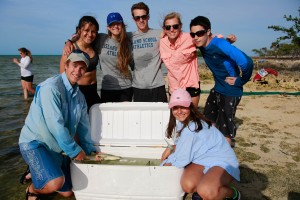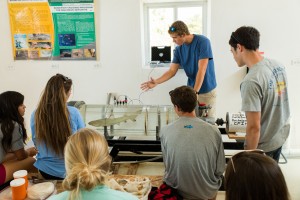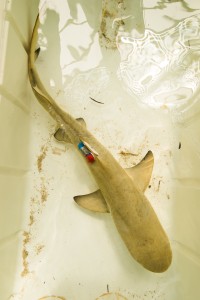
Ian is a newly appointed master’s student in the Department of Natural Resources and Environmental Sciences at the University of Illinois at Urbana-Champaign. He graduated with a B.S. from the University of Michigan in December 2012 and has been conducting research with the Shark Research and Conservation Program (SRCP) since January 2013 as an intern, research technician, and research assistant. Continuing his work with shark physiology, Ian’s thesis research focuses on quantifying the energetic costs of fisheries capture.

Globally, shark populations are in decline due to a suite of human-induced factors, such as commercial fisheries, overexploitation, and habitat loss through pollution and coastal development. In scenarios where sharks are caught incidentally and released alive the combination of exhaustion from overexertion and physical injury from capture can either result in mortality or survival with long-term consequences. While previous studies have focused on blood biochemistry as a predictor of mortality, very few studies have attempted to quantify the non-lethal physiological consequences of capture.

Specifically, Ian’s study will quantify daily energy expenditure and energetic costs of longline capture using juvenile lemon sharks as a model species. In order to measure energetic costs associated with various activity levels (e.g., a high-energy escape response from capture, or routine swimming),energy consumption, measured as oxygen consumption, is calibrated against activity level, measured as body acceleration. Therefore, acceleration-logging tags (accelerometers) can be mounted on sharks and energy consumption can be inferred from recorded acceleration values. Ian’s research is conducted in collaboration with his advisor, Dr. Cory Suski (University of Illinois), Dr. Edd Brooks (SRCP), Dr. John Mandelman (The New England Aquarium), and Dr. Steve Cooke (Carleton University).